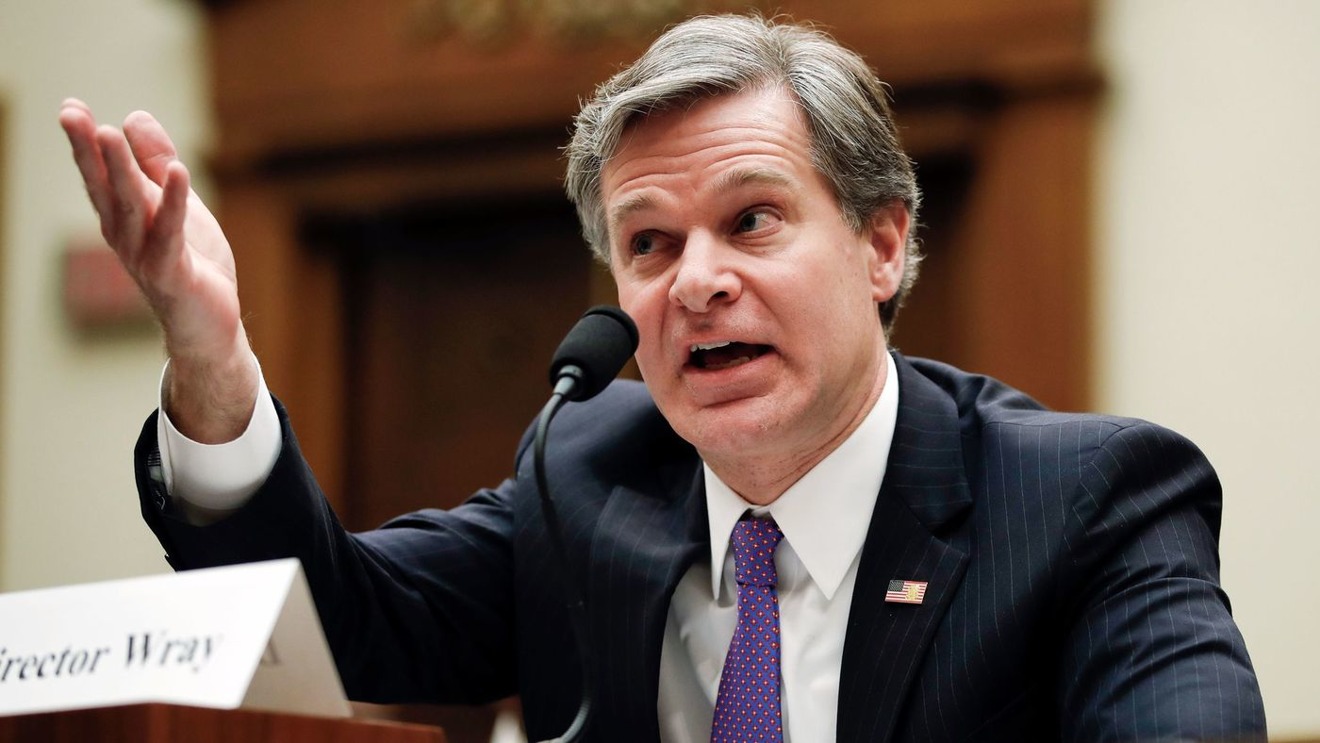A bipartisan group within the U.S. House of Representatives sent a letter to FBI Director Christopher Wray on Friday, looking for answers on why the agency took Apple to court to unlock the iPhone of San Bernardino killer Syed Rizwan Farook.
The group consists of five Republicans and five Democrats, who expressed concerns about a recent report from the Office of the Inspector General which found the FBI didn't exhaust all options before making demands from Apple, Reuters said. The FBI may have skipped alternatives "precisely because they wanted the suit against Apple to go forward," the letter suggested.
Moreover, the people argued, stories about unlock tools from firms such as Cellebrite and GrayShift — which may now be relatively commonplace — could put a lie to FBI claims that communications are "going dark" to law enforcement and spy agencies. The FBI states that it has about 7,800 devices it can't break into because of encryption, and some officials have regularly pushed for laws that would force tech companies to create backdoors.
In the San Bernardino case, Apple argued that the FBI and Justice Department were demanding just such a backdoor in iOS and stretching beyond their legal authority. That, Apple continued, would fundamentally weaken the security of its products, opening them up not just to legal searches but malicious hackers and governments, including mass surveillance programs.
Apple said it sent information to the FBI three days after the attack by Farook and his wife. The Bureau ultimately cracked Farook's iPhone 5c by paying for unspecified outside help, which prompted it to drop legal action, but found nothing of direct value.
The letter to Wray also asks whether the FBI is consulting third parties to break into iPhones, and if not, why. Likewise, lawmakers are wondering how many of the locked phones in its possession have data that could alternately be accessed through the cloud. That issue is particularly relevant in Apple's situation, since it regularly turns over iCloud data when served with a warrant or national security letter.
Some data may still require local access, since many apps from Apple and others now use end-to-end encryption that makes content opaque, even to an app's developers.
 Roger Fingas
Roger Fingas

-m.jpg)






 Andrew O'Hara
Andrew O'Hara
 Wesley Hilliard
Wesley Hilliard

 Malcolm Owen
Malcolm Owen
 Marko Zivkovic
Marko Zivkovic

 Chip Loder
Chip Loder
 Christine McKee
Christine McKee



-m.jpg)




16 Comments
What with all of the FBI revelations of the last several decades, it's clear they are an unconstitutional and extralegal agency and they should be shut down.
Because they wanted to win the case and legally invade the privacy of every iPhone owner on earth. And if they were losing they would just drop the case. Either way they’ll get away with this with at most a little slap on the wrist for some decision makers. I’d elaborate further, but you know, there’s a freedom of speech restriction around here.